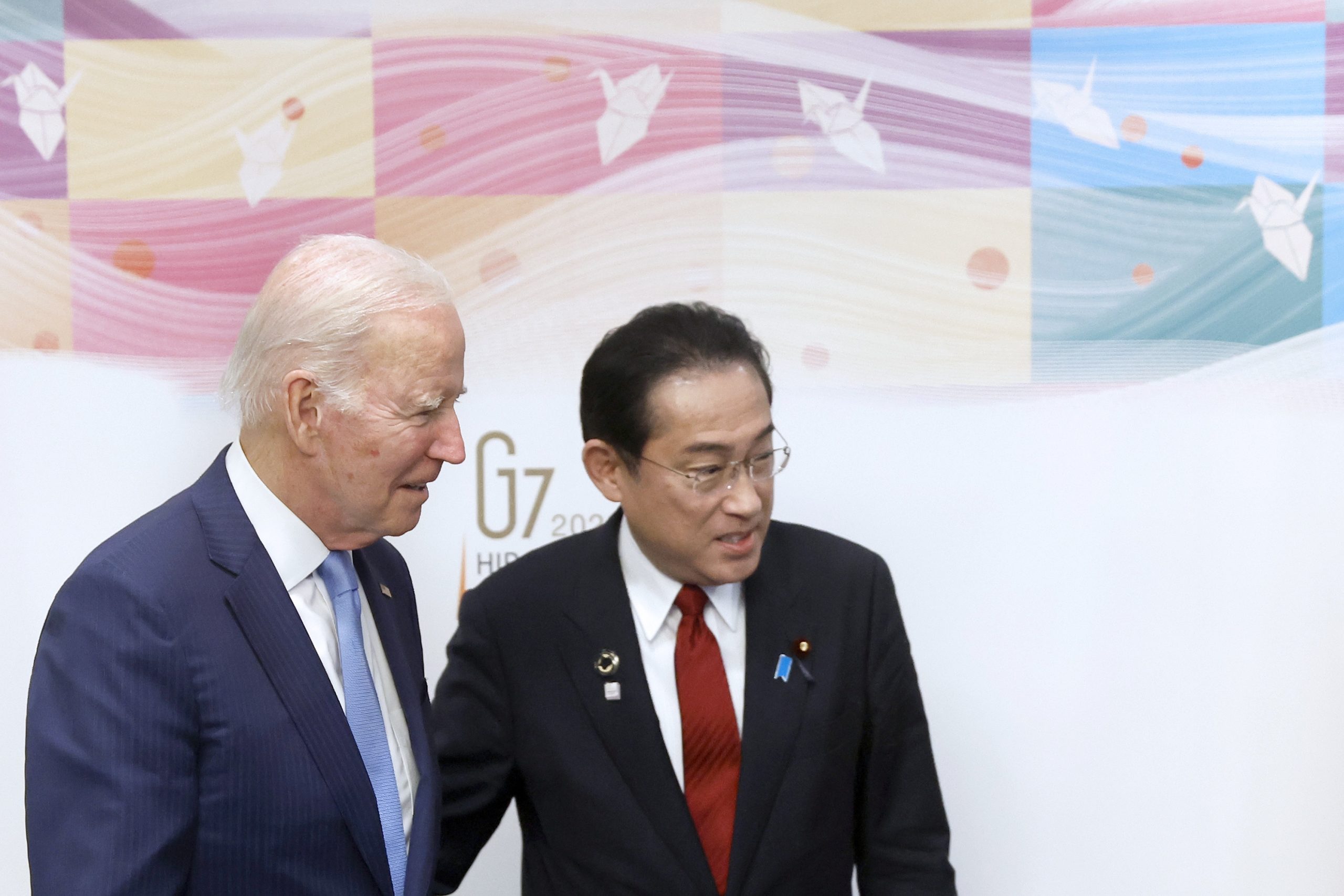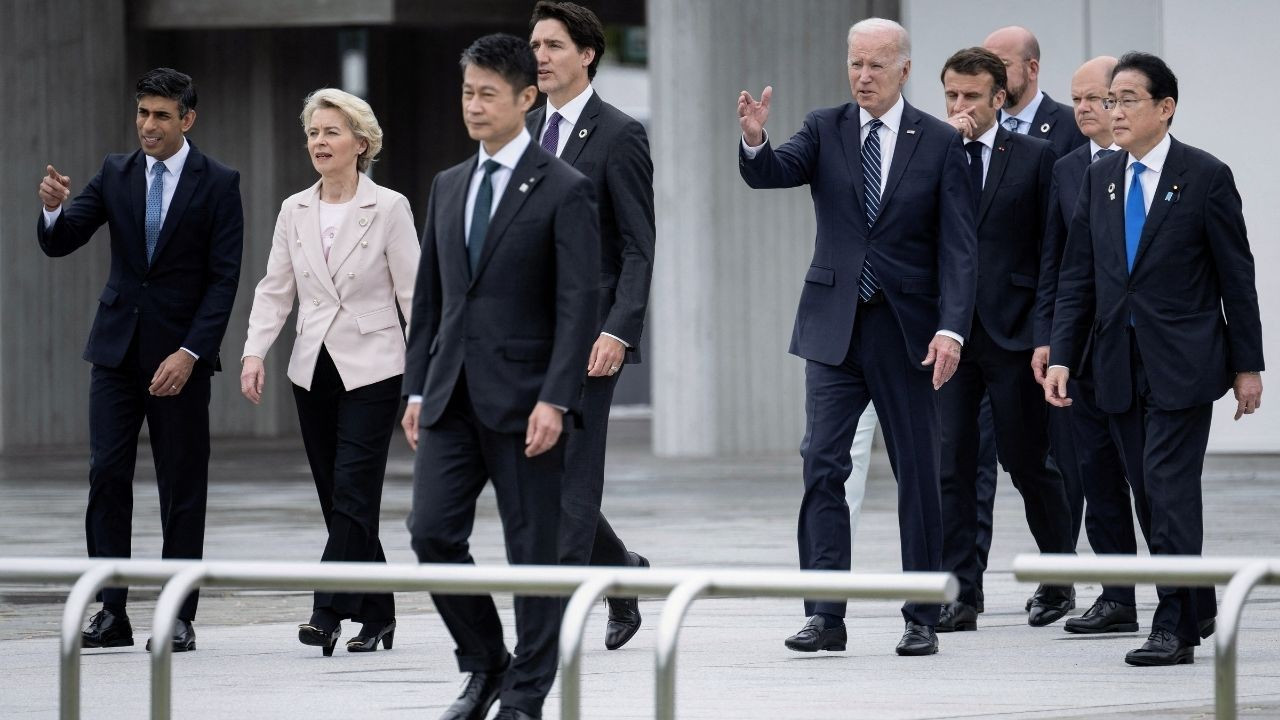As the leaders of the world’s most potent democracies convene in Hiroshima for the Group of Seven (G7) summit, the international community’s eyes turn to Japan, a host nation grappling with an increasingly assertive China and a Russian power embroiled in a war with Ukraine. It appears, however, that these authoritarian powerhouses will dominate the agenda, triggering discussions on security, economic dependency, and global unity.
The annual summit, which has become a critical platform for discourse on international policy and economics, convenes the United States, Japan, Germany, the United Kingdom, France, Canada, and Italy. This year, the G7 will strive to assert a united front against China’s ever-growing international clout and Russia’s ongoing assault on Ukraine.
China, with its global manufacturing clout and a massive consumer market, plays an integral role in the economies of the G7 nations. Hence, formulating a common approach towards China is anticipated to be a significant challenge for the summit. The complexity of the task becomes apparent when considering the diverse relationships and concerns that each member nation has with Beijing.
Despite this, experts believe that the G7 summit is an ideal platform for establishing a common denominator on China. Sun Yun, director of the China Program at the Washington-based Stimson Center, affirms that the G7 could be a pivotal opportunity for the nations to develop a common position on the matter.
As China ramps up diplomatic efforts to mend ties with Europe and divide the transatlantic alliance, the G7’s unity becomes more crucial than ever. An example of this was the recent comment by French President Emmanuel Macron, implying that Europe should not be ‘America’s followers’ and get involved in ‘crises that are not ours’, a statement that caused some disturbance in Western capitals.
Amid these challenges, Japan, as the host nation and the only Asian member of the G7, is keen on putting regional security on top of the summit’s agenda. Japanese Prime Minister Fumio Kishida’s public warning that “Ukraine today may be East Asia tomorrow” clearly reflects the growing apprehensions about Beijing’s military posturing.

In a display of power and assertion, China recently sent a naval flotilla led by one of its most powerful destroyers on a 12-day tour around Japan’s main islands just ahead of the G7 summit, highlighting Tokyo’s concerns.
Another crucial theme expected to dominate the summit’s agenda is economic security, specifically how to counter China’s economic coercion tactics. US Treasury secretary Janet Yellen called for a “coordinated action” by the G7 against Beijing’s use of economic coercion at a meeting of finance ministers in Japan. A similar sentiment was echoed by European Commission President Ursula von der Leyen.
The G7 summit will likely work towards reducing the heavy economic dependency on China by diversifying supply chains. However, the extent to which other nations are willing to follow through remains a matter of debate.
In a bid to expand their global influence and address a wider range of challenges, the G7 summit has extended invitations to leaders from several developing nations as observers. This move aims to broaden the scope of discussions beyond the traditional realm of affluent democracies. Notably, countries like India, Brazil, Vietnam, and Indonesia have been included, recognizing their growing significance on the global stage. Additionally, President Yoon Suk Yeol of South Korea will participate in the summit, reflecting the mounting anxieties related to North Korea’s threats and the escalating concerns surrounding China.
As the G7 summit gets underway, China, uninvited and closely observing, will not conceal its displeasure. Chinese officials have already criticized a statement made by the G7 foreign ministers, accusing it of arrogance and prejudice against China. They have also dismissed accusations of its economic coercion, alleging instead that they are victims of US economic coercion.
In a strategic move that underlines China’s influence, Beijing is hosting its own summit with Central Asian countries concurrently with the G7 summit. Though not coordinated, this gathering shows China’s efforts to establish a coalition with its like-minded countries.
In conclusion, the G7 summit in Hiroshima is set to witness critical discussions on international security, economics, and unity against an increasingly assertive China and Russia. The outcomes of these discussions may significantly shape the world order in the coming years, underlining the summit’s importance. Despite facing the challenging task of aligning their varied interests and relationships with China, the G7 leaders are expected to strive for a united front against the authoritarian powers.
©world-news.biz
